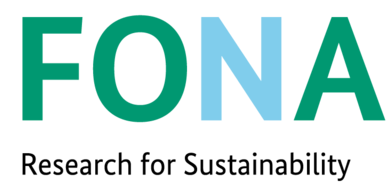Humboldt-Tipping II
Welcome to Humboldt Tipping Phase 2, where our international team of scientists from Germany and Peru is dedicated to understanding the global change risks in the Humboldt Upwelling System (HUS) and exploring adaptation options.
In the second phase, we combine what we've learned in the first phase into an integrated analysis of future scenarios under the Shared Socioeconomic Pathways (SSPs). This helps us provide useful information for global climate change research and policy considerations.
What we're up to:
Scenario development:
We're developing tailor-made scenarios for the HUS, consistently evaluated across our different work packages: the HUS-SSPs scenarios.
Adaptation strategies:
What changes are we expecting, and how can we adapt? We're looking into adaptation options and sustainable transformation corridors for industrial and artisanal fisheries under our scenarios: the adaptation matrix.
Synthesis & outreach:
We want to contribute to the regional knowledge base! We're synthesizing our results and making them available to stakeholders and decision-makers.
Through our outreach activities, a hybrid summer school for undergraduate students, and a regional workshop with stakeholders, we want to foster transformations and open dialogue.
Join us as we present management options for food and livelihood security, poverty alleviation, and sustainable fisheries (all in line with the UN SDGs 1, 2 and 14).
Central Questions:
What are the direct impacts on artisanal fishery communities?
What are the impacts on the industrial fleet?
How will the projected changes impact the local and global markets?
What kind of policy measures can ensure a sustainable use of the natural resources?
𓆝 𓆟 𓆞 𓆝 𓆟 𓆞 𓆝 𓆟 𓆞 𓆝 𓆟 𓆞 𓆝 𓆟 𓆞 𓆝 𓆟 𓆞 𓆝 𓆟 𓆞 𓆝 𓆟 𓆞 𓆝 𓆟 𓆞 𓆝 𓆟 𓆞
Meet our team!
We have experts in biogeochemistry, fisheries ecology, ocean and ecosystem modeling, economics and social sciences from Germany and Peru. We actively involve local communities of coastal Peru, fostering a holistic understanding of the relationships between ecological, social, and economic dynamics in the HUS.
Work packages
Work package 1: Project Management and scenario development
Work package 2: Assessment of risk, trade-offs and uncertainty for management
Work package 3: Detectability of change in the HUS ecosystem under global change
Work package 4: Regional and global economic consequences of regime shifts in fish production
Work package 5: Participatory modeling of social-ecological futures of Sechura Bay
Work package 6: Participatory ecosystem-based management strategies for shifts among pelagic-demersal resources and for coastal systems in the HUS
Work package 7: Stakeholder engagement and governance for sustainability transformations
𓆝 𓆟 𓆞 𓆝 𓆟 𓆞 𓆝 𓆟 𓆞 𓆝 𓆟 𓆞 𓆝 𓆟 𓆞 𓆝 𓆟 𓆞 𓆝 𓆟 𓆞 𓆝 𓆟 𓆞 𓆝 𓆟 𓆞 𓆝 𓆟 𓆞
Our Science Advisory Board
The project is consulted by an international scientific advisory board:
Dr. Arnaud Bertrand | Institute of Research and Development, France
Prof. Matthias Wolff | Leibnitz Centre for Tropical Marine Research, Bremen
Dr. Milena Arias Schreiber | University of Gothenburg, Sweden
Prof. Astrid Jarre | University of Cape Town, South Africa
Dr. Kelly Ortega-Cisneros | University of Cape Town, South Africa
𓆝 𓆟 𓆞 𓆝 𓆟 𓆞 𓆝 𓆟 𓆞 𓆝 𓆟 𓆞 𓆝 𓆟 𓆞 𓆝 𓆟 𓆞 𓆝 𓆟 𓆞 𓆝 𓆟 𓆞 𓆝 𓆟 𓆞 𓆝 𓆟 𓆞

For More Information:
Humboldt Tipping II is part of the larger project "GlobalTip", funded by the Federal Ministry of Education and Research (BMBF), the Project Management Agency (DLR) and Research for Sustainability (FONA).


